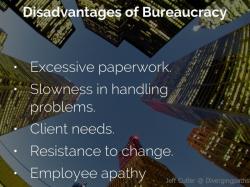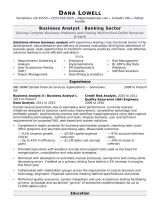What does operations manager do in business?
An operations manager plays a crucial role in ensuring the efficiency and effectiveness of various business processes. The specific duties and responsibilities may vary depending on the industry and the size of the organization, but generally, an operations manager is responsible for overseeing and optimizing the day-to-day activities to achieve organizational goals. Here are the key roles and responsibilities of an operations manager in business:
Strategic Planning:
- Collaborate with top management to develop and implement operational strategies that align with the overall business objectives.
- Contribute to the development of long-term business plans and initiatives.
Process Optimization:
- Analyze existing business processes to identify areas for improvement in efficiency, productivity, and cost-effectiveness.
- Implement process improvements and best practices to streamline operations.
Resource Management:
- Manage and allocate resources efficiently, including human resources, equipment, and materials.
- Develop and implement resource allocation plans to meet organizational needs.
Quality Control:
- Establish and monitor quality control standards to ensure products or services meet or exceed customer expectations.
- Implement quality improvement initiatives to enhance overall product or service quality.
Supply Chain Management:
- Oversee the procurement, storage, and distribution of materials and products.
- Optimize the supply chain to minimize costs, reduce lead times, and improve overall efficiency.
Budgeting and Cost Control:
- Develop and manage operational budgets to ensure financial goals are met.
- Implement cost control measures to optimize spending and improve profitability.
Team Leadership:
- Supervise and lead a team of operations staff, providing guidance, training, and performance feedback.
- Foster a positive and collaborative work environment.
Risk Management:
- Identify potential risks to operations and develop strategies to mitigate them.
- Implement risk management processes to ensure business continuity.
Data Analysis and Reporting:
- Utilize data analytics to assess operational performance and identify trends.
- Generate reports and present findings to support data-driven decision-making.
Customer Satisfaction:
- Ensure that operational processes contribute to a positive customer experience.
- Address customer concerns and implement improvements to enhance satisfaction.
Compliance and Regulatory Adherence:
- Ensure that operations comply with relevant laws, regulations, and industry standards.
- Implement and monitor compliance processes and practices.
Technology Integration:
- Identify and implement technological solutions to improve operational efficiency.
- Stay informed about emerging technologies relevant to the industry.
Continuous Improvement:
- Promote a culture of continuous improvement within the operations team.
- Encourage feedback from team members and implement changes to enhance efficiency and effectiveness.
Communication:
- Facilitate communication and collaboration between different departments within the organization.
- Communicate operational objectives, goals, and performance metrics to the team.
Emergency Preparedness:
- Develop and implement plans for emergency situations or disruptions to ensure business continuity.
- Coordinate responses to unforeseen events that may impact operations.
Overall, the operations manager is responsible for overseeing the operational aspects of a business, ensuring that processes run smoothly, resources are utilized efficiently, and the organization meets its strategic objectives. Their role is pivotal in creating a well-functioning and sustainable business operation.
The Operations Maestro: Responsibilities, Impact, and Industry Focus
An operations manager is the conductor of the business orchestra, ensuring everything runs smoothly and efficiently behind the scenes. Their responsibilities are vast and impactful, contributing significantly to the success and function of any organization.
1. Responsibilities and Duties:
- Overseeing day-to-day operations: This includes managing production, inventory, logistics, quality control, and customer service.
- Optimizing processes: Analyzing and improving workflows, procedures, and systems to maximize efficiency and minimize waste.
- Managing resources: Allocating personnel, equipment, and budget effectively to ensure smooth operations and meet business goals.
- Data analysis and reporting: Tracking key performance indicators (KPIs) and providing insights to improve decision-making.
- Compliance and regulations: Ensuring adherence to industry regulations and company policies.
- Project management: Overseeing specific projects within the operations department and delivering them on time and within budget.
- Team leadership: Motivating, coaching, and developing personnel within the operations team.
2. Contribution to Business Success:
- Increased efficiency and productivity: Streamlined processes and optimized resource allocation lead to better output and cost savings.
- Improved quality and customer satisfaction: Effective quality control and efficient customer service enhance brand reputation and customer loyalty.
- Enhanced business agility: Adapting to changes in demand, market trends, and unforeseen circumstances keeps the business running smoothly.
- Data-driven decision making: Providing valuable insights based on operational data informs strategic decisions across the organization.
- Cost reduction and profitability: Increased efficiency, optimized resource usage, and improved quality control directly contribute to increased profitability.
3. Critical Industries:
The role of an operations manager is vital across various industries, but it's particularly critical in:
- Manufacturing: Managing production lines, inventory, and supply chains is crucial for efficiency and product quality.
- Logistics and transportation: Ensuring timely delivery of goods and resources requires expert planning and operational management.
- Healthcare: Smoothly managing patient flow, equipment, and staff contributes directly to patient care and hospital efficiency.
- Retail: Inventory management, staffing, and logistics are key to customer satisfaction and store profitability.
- Technology: Efficient server operations, infrastructure maintenance, and resource allocation are critical for reliable tech services.
In conclusion, operations managers are the backbone of any successful business. Their diverse responsibilities, focus on optimization, and data-driven approach contribute significantly to achieving desired outcomes, ensuring smooth operations, and fostering a culture of efficiency. This versatile role is a cornerstone in a wide range of industries, making it a truly impactful career choice.












